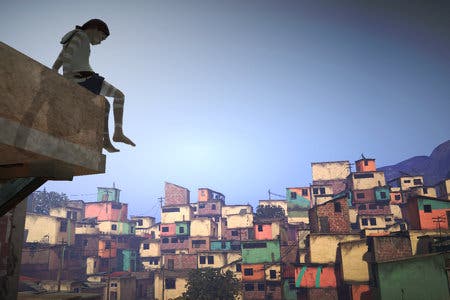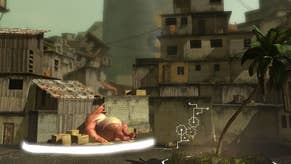Papo & Yo Review
Like father, unlike son.
All video games give life to childhood fantasy. They send us soaring into space; they mine us deep underground. They propel us far into the future; they return us to the distant past. They take us backstage at the concert; they take us front line in the war. They turn the bullied into the aggressor, the wimp into the champion footballer, and they guarantee we get the girl.
So it is with Papo & Yo, a PlayStation Store game bursting at the seams with innocent wish-fulfilment. Which child hasn't dreamed their favourite toy would spring to life then fly them across gaps and chasms, or carry out those tasks that are just out of reach? Which child never fantasised about plucking buildings from their roots and, with nudge of the hand, rearranging them in whatever order they wish - a god of town planning, a king with the power to widen those boundaries adults impose?
Which child hasn't longed to spear the heart of the monster that was their father's substance addiction?
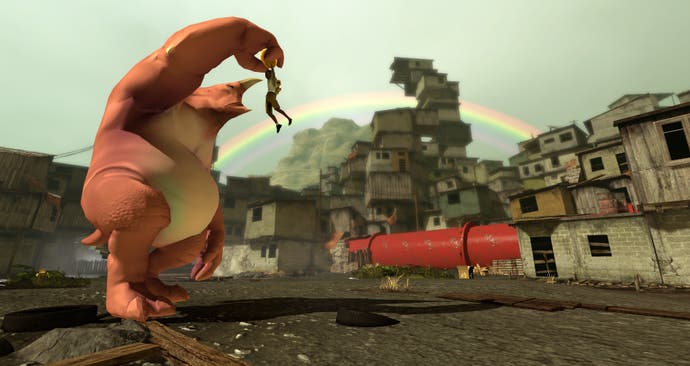
Papo & Yo then, is a game like the others, and yet somehow nothing like them at all. For one, it wears its allegory on its sleeve. 'To my mother, brothers and sister, with whom I survived the monster in my father,' reads the game's opening dedication, setting a muted tone that no amount of sun-bronzed South American vistas can lift.
Some might accuse creative director Vander Caballero of heavy-handedness here. Why not allow the game to speak for itself? Why flag up the autobiographical connotation before we've had the opportunity to find it for ourselves? But in a medium that rarely touches upon themes beyond the pursuit of power, the quest for dominance and the relentless search for strength, where allegory - even within the indie movement - is something of a stranger, who can blame the developer for drawing attention to its novel ambition up front?
Besides, Papo & Yo does speak for itself: loud, clear, personal, affecting. It begins with a rooftop chase, your schoolboy character pursuing a girl through streets filled with the mundane - wilting plants in terracotta pots, discarded footballs - but underpinned by heavy magic. Arcane symbols chalked on walls conjure staircases where there were none at the touch of a button, while concrete peels back to reveal bright, ethereal nooks and cellars.
Move a discarded box two feet to the left and the building in front of you might just move in kind. It's the kind of awesome power that only a child would apply in such a modest manner - creating pathways through the city where there were none in order to win a game of chase. It's innocent, beguiling and itself acts as a metaphor for the greater message: a boy trying his best to navigate and change the landscape of an indifferent, harsh environment.
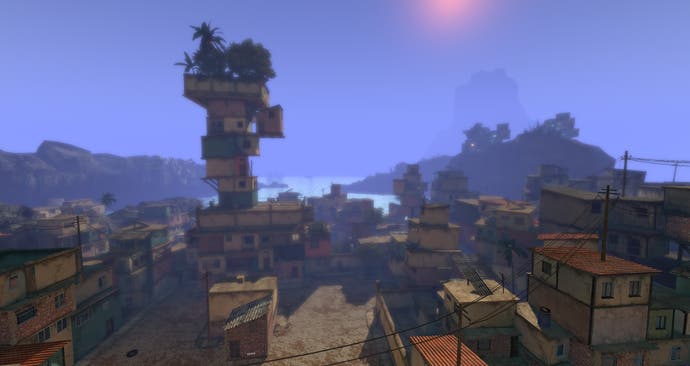
Soon enough you meet the monster that represents Caballero's father's alcoholism, a lumbering ugly giant, docile when eating coconuts - which are used to lure him about the world in order to step on switches or act as a trampoline to reach higher platforms - but enraged when licking frogs.
Papo & Yo joins Fez in that rare class of video game in which there is no combat. Your character has few tools at his disposal: his toy robot allows him to hover for a few seconds after a jump and he has the ability to pick up and place objects. He is otherwise powerless, Caballero and his team realising what so many game makers miss, that true impact comes from disempowerment, not dominance.
These abilities are put to use in a series of environmental puzzles. Many of these take the form of simple key-and-lock conundrums, where you must find the relevant symbol to unlock progress. But the game routinely surprises with brighter, broader ideas.
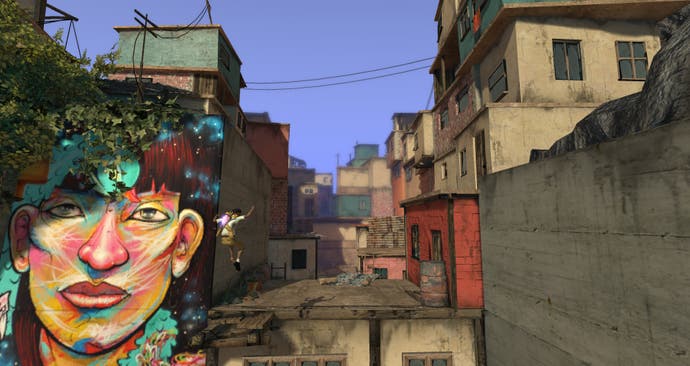
In one especially memorable section, you must create a tower of houses before tilting and bending the stack in order to reach new platforms high above the city. There's a pleasing lack of predestination to the interaction here; you're free to scurry about the scene, choosing the order in which you stack the buildings as well as the precise angle of the stack.
Tutorials and tips are bedded into the game fiction, scrawled on the inside of cardboard boxes which you can pull over your head and read at your leisure. The image of the small child retreating into a safe place to consider what to do next is neatly aligned with the game's wider themes.
The story is lightly told, the cut-scenes sparse and dialogue fleeting. Every so often, the director breaks to a flashback, a scene that points to the tragic consequence of his father's addiction in real life. But the gentle tone elsewhere ensures that those moments where the elephant in the room is addressed are all the more affecting.
"He cannot control himself," says the boy after the monster's first uncontrollable rage - one part statement of fact, one part defence.
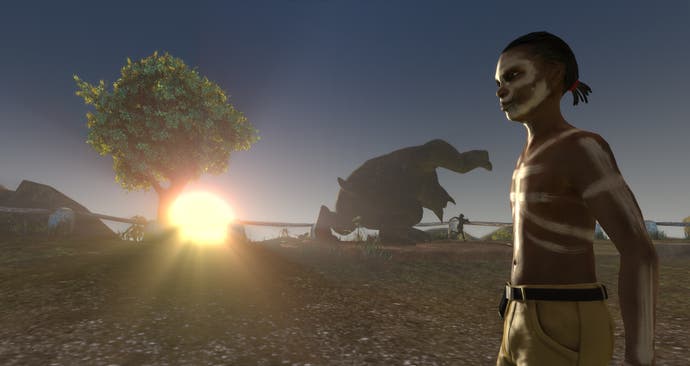
"There is a cure," says the girl.
"Cure? How?"
"Only you can cure the monster."
"But I don't know anything," he pleads.
It's unclear whether the scene is supposed to be a conversation between the boy and his conscience - that hopeful, yearning side to any child who lives with a parent who cannot control their demons. But this is inescapably a game about a child trying saving the unsaveable, assuming a confused role and an impossible task that no boy should ever have to take on, and yet so many do.
Papo & Yo has all of the components that a successful video game requires: challenge, invention, pace and beguiling secrets. Take it as a pure collection of systems, divorced from the narrative intent, and you are left with an enjoyable set of challenges. But to prise meaning from mechanic is to miss the point. This is an autobiographical video game in which the mechanics exist entirely to promote the meaning.
You have undoubtedly been invited into a cathartic exercise; Caballero's therapist even makes an appearance in the game. When film directors work out their grief, anger or resentment on the screen, you spectate. With Papo & Yo you are an active participate in this therapeutic endeavour and while that can lead to a sense of discomfort, it also elicits a rare kind of empathy.
Papo & Yo is a difficult game, and not in the usual sense of the phrase (even its most knotted conundrums yield after a little consideration). It's the ugly subject matter that's challenging, and the way in which the game invites you to walk through the contours of distress. And yet there is something redemptive at its heart. Its existence is evidence that the child became a man and conquered his family demons - not to mention evidence that games have the capacity to speak to the darker folds of the human condition, and illuminate them.
